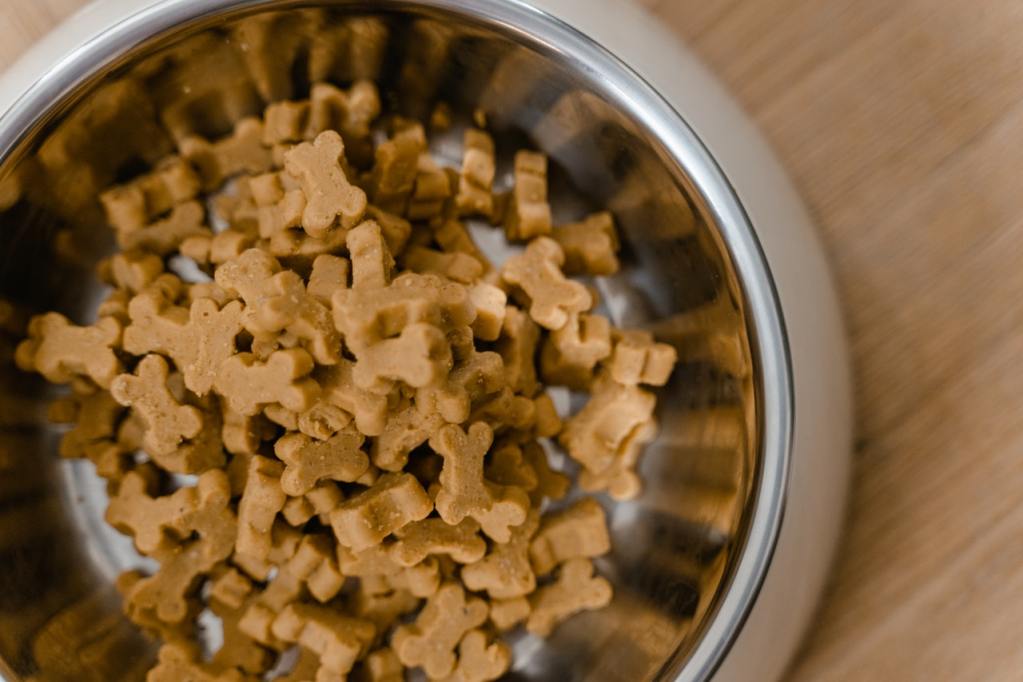Does your dog have a sensitive stomach? If your pup suffers from gastrointestinal issues such as nausea, vomiting, excess gas, and diarrhea, his diet could be to blame. Although many dog food brands claim their food provides a balanced, nutrient-dense diet for all dogs, including those with sensitive stomachs, that might not be the case for your pooch.
- #1: Blue Buffalo Basics Limited Ingredient Diet Turkey & Potato Recipe Small Breed Adult Dry Dog Food
- #2: Hill’s Science Diet Adult Sensitive Stomach & Skin Chicken Recipe Dry Dog Food
- #3: Hill’s Science Diet Adult 7+ Chicken & Barley Entrée Canned Dog Food
- #4: Purina ONE SmartBlend Sensitive Systems Formula Adult Premium Dry Dog Food
- #5: Purina Pro Plan Sensitive Skin & Stomach Salmon & Rice Dry Puppy Food
- #6: Royal Canin Veterinary Diet Adult Gastrointestinal Low Fat Loaf Canned Dog Food
- #7: Solid Gold Leaping Waters Sensitive Stomach Grain-Free Cold Water Salmon & Vegetable Dry Dog Food
We’ve rounded up the seven best foods for dogs with sensitive stomachs. Each brand featured on our list has been formulated to alleviate symptoms like gas and stomach upset, improve your dog’s digestion, and even provide a much-needed boost to his gut health. As always, we recommend speaking to your veterinarian before you start your dog on any new diet, especially if he has stomach issues.

#1: Blue Buffalo Basics Limited Ingredient Diet Turkey & Potato Recipe Small Breed Adult Dry Dog Food
According to Dr. Jennifer Coates, DVM, “Some dogs cannot handle a lot of variety in their diet or withstand ingredients that make their digestive systems work a little harder than normal.” Eliminating unnecessary ingredients with a basic formula like Blue Buffalo’s Limited Ingredient blend helps simplify your pup’s diet, allowing them to digest their food more easily. Blue Buffalo never uses chicken or poultry by-product meals, corn, wheat, or soy in their foods, so you’re also eliminating fillers and common allergens from your dog’s diet. Made with real turkey, potatoes, peas, and pumpkin, this formula aids in healthy digestion. Blue Buffalo’s formula also contains omega-3 and omega-6 fatty acids, which improve the condition of your pup’s skin and coat.
#2: Hill’s Science Diet Adult Sensitive Stomach & Skin Chicken Recipe Dry Dog Food
When it comes to dogs with sensitive stomachs, a simple diet is best. That means you want to look for dog foods containing immediately recognizable ingredients. Hill’s Science Diet features real chicken as the first ingredient, and this blend is also full of prebiotics, which are “a form of dietary fiber that support the growth of healthy intestinal bacteria so that harmful bacteria can’t overrun your immune health and make you sick,” as defined by Vetericyn. In addition to microbiome-supporting prebiotics, this formula also boasts vitamin E and omega-6 fatty acids to promote skin and coat health.
#3: Hill’s Science Diet Adult 7+ Chicken & Barley Entrée Canned Dog Food
Many dogs turn their noses up at dry kibble. If your senior pup is a finicky eater — or suffers from dental problems that make eating kibble a chore – they’ll love this nutritious wet food from Hill’s Science Diet. Older dogs begin to lose muscle mass and aren’t as active as they used to be, but this food was specially formulated to support muscle mass and help your pup stay active. Developed to support heart health, this food is made with easily digestible ingredients like chicken, pork liver, and cracked pearled barley. It also contains vitamins and supplements like niacin, folic acid, and vitamin D3, which support bone health.
#4: Purina ONE SmartBlend Sensitive Systems Formula Adult Premium Dry Dog Food
Looking for a dog food formula that offers all nutrition and zero fillers? This is the one for you. Made with real salmon and easy-to-digest ingredients like rice and oatmeal, this formula contains no artificial flavors, colors, or preservatives. Additionally, this blend features omega-6 fatty acids, vitamin E, and natural glucosamine to improve your dog’s joint health. Even better, SmartBlend contains a dual-defense blend of antioxidants to give your dog’s immune system a boost.
#5: Purina Pro Plan Sensitive Skin & Stomach Salmon & Rice Dry Puppy Food
Just like adult dogs, young puppies can suffer from sensitive stomachs. In fact, some food sensitivities also cause dry, itchy skin. This blend from Purina Pro Plan contains easily digestible ingredients like salmon and rice. Omega-6 fatty acids and vitamin A improve your puppy’s skin and coat, while fish oil promotes healthy brain and vision development. Live probiotics and prebiotic fiber improve digestion and support the growth of healthy gut bacteria, while calcium and phosphorus support teeth and bones. Best of all, this formula is free of artificial colors and flavors, so you can trust that every ingredient provides essential nutrients for your pooch.
#6: Royal Canin Veterinary Diet Adult Gastrointestinal Low Fat Loaf Canned Dog Food
If your pup tends to carry excess weight, the last thing you want to do is feed them a fattening diet. Fortunately, this blend will improve your dog’s sensitive stomach without loading them down with too many calories. Prebiotics promote healthy gut flora, while dietary fiber improves digestion. This formula contains omega-3 fatty acids to calm your pooch’s aggravated gastrointestinal tract. Royal Canin’s formula also uses a proprietary S/O Index to prevent the formation of crystals in the bladder.
#7: Solid Gold Leaping Waters Sensitive Stomach Grain-Free Cold Water Salmon & Vegetable Dry Dog Food
Just like humans, some dogs can’t digest grains or gluten. This blend from Solid Gold is grain- and gluten-free and contains chickpeas and tapioca to provide your dog with much-needed carbohydrates. Cold-water salmon is packed with protein and omega-3 and omega-6 fatty acids, which improve your dog’s skin and coat without upsetting his delicate stomach. Solid Gold’s formula also contains a blend of 20 easily digestible superfoods to boost your pup’s immune health and support a healthy gut.
Mealtime can be tricky if your dog has a sensitive stomach. Fortunately, many dog food brands have expanded their options to accommodate even the most delicate digestive tract. Talk to your veterinarian about starting your pup on a sensitive stomach diet. They can tell you how best to transition your pooch to their new diet, and may recommend additional supplements to help support gut health.
Editors' Recommendations
- The Best Dry Dog Food of 2023 for a Balanced Diet
- Taking your dog’s collar off at night: Safe move or safety risk?
- Video: This family dog is the world’s best babysitter
- Xylitol is dangerous for dogs: 10 surprising products that contain it as a hidden ingredient
- What is the best food for older dogs? These 6 vet-approved kibbles and canned foods won’t steer you wrong




